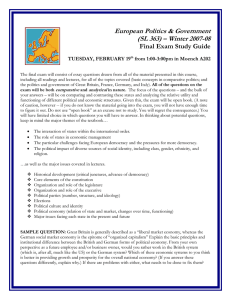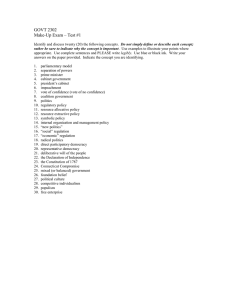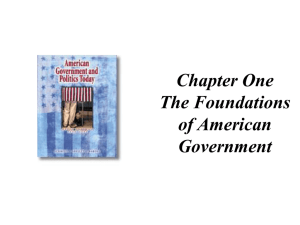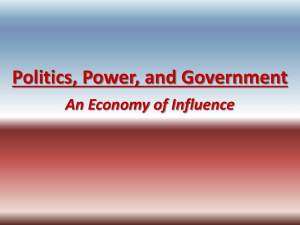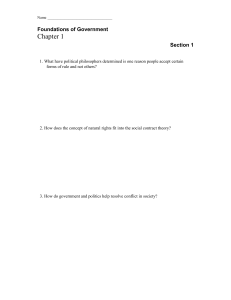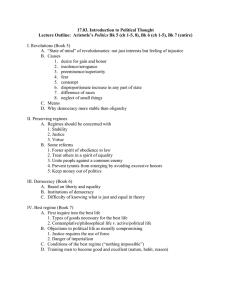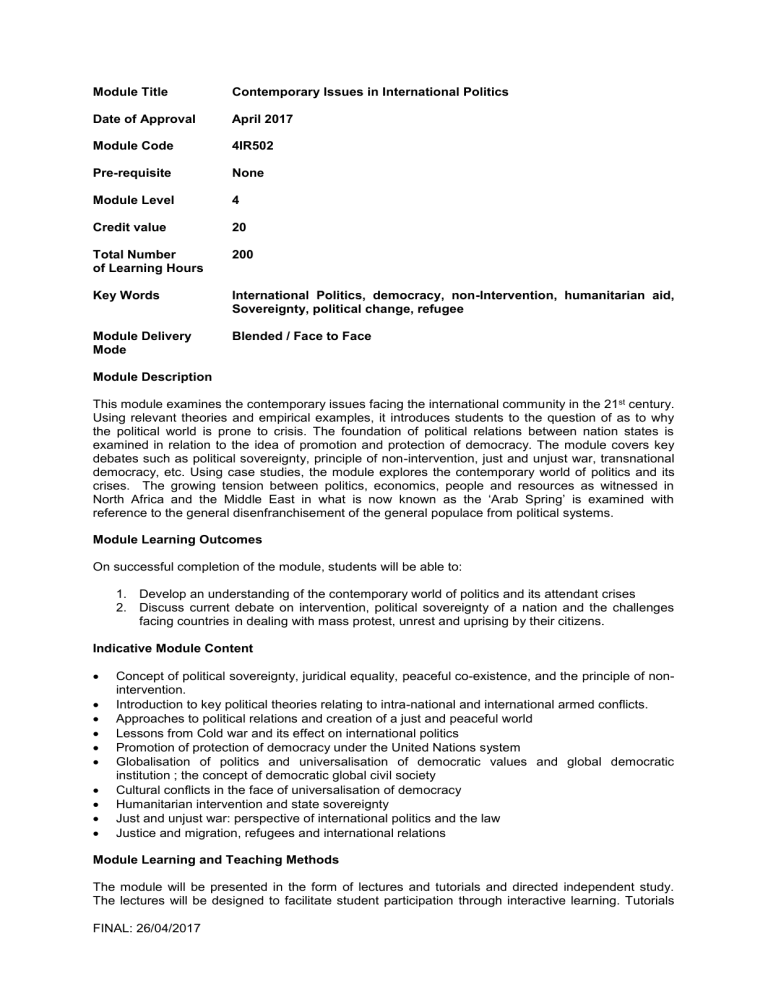
Module Title Contemporary Issues in International Politics Date of Approval April 2017 Module Code 4IR502 Pre-requisite None Module Level 4 Credit value 20 Total Number of Learning Hours 200 Key Words International Politics, democracy, non-Intervention, humanitarian aid, Sovereignty, political change, refugee Module Delivery Mode Blended / Face to Face Module Description This module examines the contemporary issues facing the international community in the 21st century. Using relevant theories and empirical examples, it introduces students to the question of as to why the political world is prone to crisis. The foundation of political relations between nation states is examined in relation to the idea of promotion and protection of democracy. The module covers key debates such as political sovereignty, principle of non-intervention, just and unjust war, transnational democracy, etc. Using case studies, the module explores the contemporary world of politics and its crises. The growing tension between politics, economics, people and resources as witnessed in North Africa and the Middle East in what is now known as the ‘Arab Spring’ is examined with reference to the general disenfranchisement of the general populace from political systems. Module Learning Outcomes On successful completion of the module, students will be able to: 1. Develop an understanding of the contemporary world of politics and its attendant crises 2. Discuss current debate on intervention, political sovereignty of a nation and the challenges facing countries in dealing with mass protest, unrest and uprising by their citizens. Indicative Module Content Concept of political sovereignty, juridical equality, peaceful co-existence, and the principle of nonintervention. Introduction to key political theories relating to intra-national and international armed conflicts. Approaches to political relations and creation of a just and peaceful world Lessons from Cold war and its effect on international politics Promotion of protection of democracy under the United Nations system Globalisation of politics and universalisation of democratic values and global democratic institution ; the concept of democratic global civil society Cultural conflicts in the face of universalisation of democracy Humanitarian intervention and state sovereignty Just and unjust war: perspective of international politics and the law Justice and migration, refugees and international relations Module Learning and Teaching Methods The module will be presented in the form of lectures and tutorials and directed independent study. The lectures will be designed to facilitate student participation through interactive learning. Tutorials FINAL: 26/04/2017 will take the form of a problem case study requiring the students to prepare a resolution to the problem and articulate their findings. Learning & Teaching Methods Campus delivery Lectures Tutorials Independent Study Total 24 hours 12 164 hours 200 hours Scheduled learning and teaching activities: Guided independent study: Module Assessment Mode: Coursework 100% Type of Assessment Coursework 1 50% (Learning outcome 1) Students will write a 1,500 words essay Coursework 2 Class test FINAL: 26/04/2017 50% (Learning outcome 2) 18% 82%
